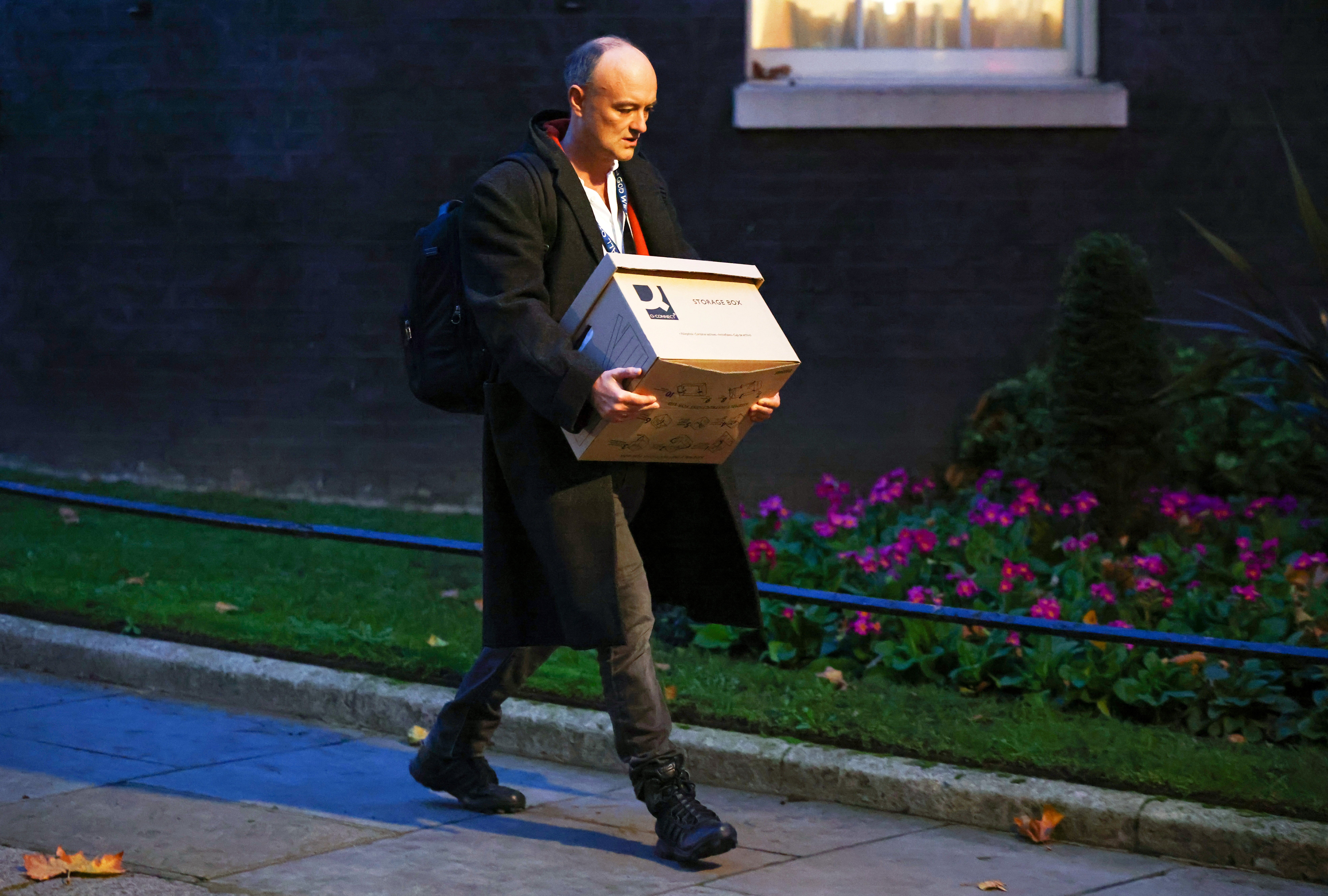How should Labour respond to Dominic Cummings’s departure?
Keir Starmer hasn’t said anything about the ructions in No 10: John Rentoul looks at the reasons


So far Keir Starmer has allowed the Conservative government to tear itself apart without providing any commentary from the opposition. On Wednesday, the incendiary report that Boris Johnson was “poised” to make Lee Cain, Dominic Cummings’s lieutenant, Downing Street chief of staff provoked Tory civil war, with Tory MPs and Carrie Symonds, the prime minister’s fiancee, piling in to stop the appointment.
Starmer ignored it at Prime Minister’s Questions (PMQs), raising worthy subjects such as armed forces charities and wasteful spending on PR consultants.
Instead of being confirmed as chief of staff, however, Cain that evening announced his resignation. This time the Labour Party did say something, putting out a three-sentence statement: “On the day the UK became the first country in Europe to report 50,000 coronavirus deaths and the public endure another lockdown, Boris Johnson’s government is fighting like rats in a sack over who gets what job. It is precisely this lack of focus and rank incompetence that has held Britain back. The public deserve better than this incompetent and divided Conservative government.”
Twenty-four hours later, and Cummings said that he too would be going by the end of the year. The reaction from Labour has been so low key that the key has been pushed under the door. Louise Haigh, the shadow Northern Ireland secretary, said a few words on TV, and a spokesperson said: “It’s the country that suffers as this deeply divided government spends days and weeks bickering over who has which desk in No 10. In normal times it would be utterly embarrassing – in the midst of a pandemic it’s irresponsible.”
This is good-quality boilerplate, but it is shouting from the sideline rather than getting stuck in. Starmer’s calculation is easy to deduce: why get involved and risk pushing the Tories to unite when they are doing such a good job of attacking each other – and when the prime minister, by his absence, looks weak?
Even so, in deciding not to mention Cain’s impending promotion at PMQs, the Labour leader resisted a temptation to which most of his predecessors would have succumbed. Not Jeremy Corbyn, of course, who once failed to ask David Cameron about the resignation of Iain Duncan Smith over benefit cuts, because he didn’t want to get “personal”. But Tony Blair would have got in a reference to the difficulty of filling senior posts, knowing what a sore point it was among Tory MPs – and that the prime minister would have been unable to respond. John Smith, who once used his serious demeanour of a Scottish bank manager to recite the lyrics to the theme song of Neighbours to mock the relationship between Margaret Thatcher and Nigel Lawson, would certainly have found a way to torture Johnson with it.
Starmer, on the other hand, is parsimonious with humour as a weapon. Now that Cummings, who was Labour’s bugbear, has resigned, there is a challenge for the opposition as to how to respond. One problem Labour has is that, beyond Cummings’s reputation as a Eurosceptic and an outlaw, it has more in common with him than might be expected. He is said to be serious about delivering for the “forgotten” working-class voters of the red wall, for example; his contempt for elites is something more usually found on the left of politics; and he has been on the pro-lockdown side of the argument in government against the liberal instincts of the prime minister and of large numbers of Tory MPs.
So you can see why Starmer might think it best to stick to the “rats in a sack” line and leave them to it.

Join our commenting forum
Join thought-provoking conversations, follow other Independent readers and see their replies
Comments